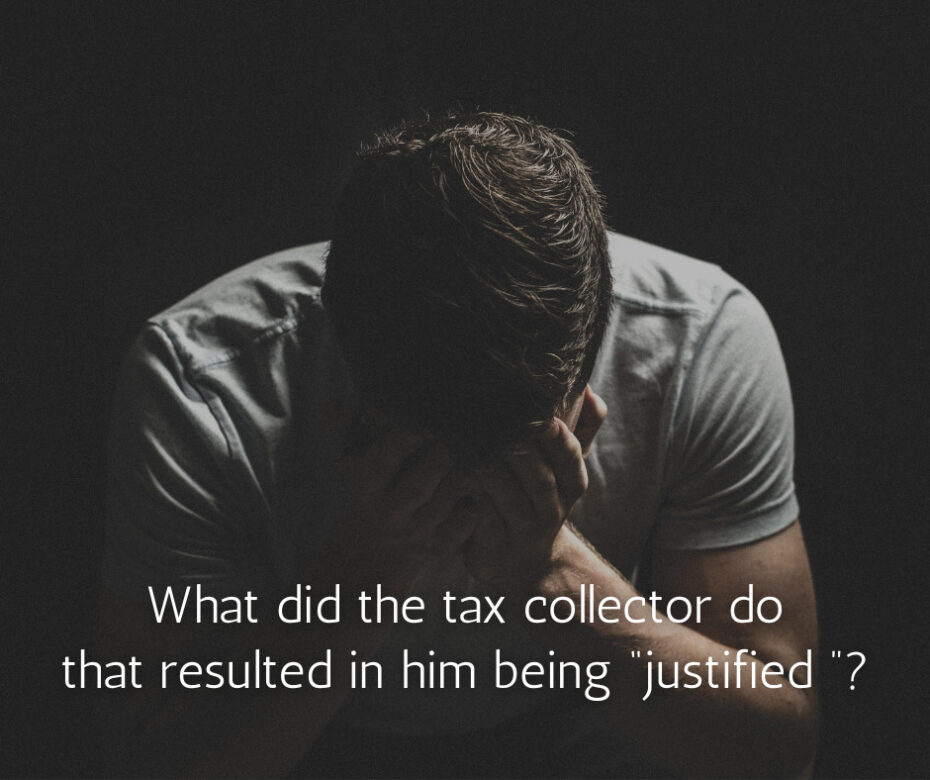“I tell you, this man went to his house justified rather than the other; for everyone who exalts himself will be humbled, but he who humbles himself will be exalted” (Luke 18:14).
In church this past Sunday, I heard a fine sermon on Luke 18:9-14, the Parable of the Pharisee and the Publican. The preacher rightly saw in the Pharisee a self-righteous attitude and in the publican a humble attitude. He suggested that the tax collector was justified by faith that very day. His humility indicated that he was believing in Jesus for everlasting life.
I held that view until around 2008, long after I graduated from DTS with my master’s (1982) and doctoral (1985) degrees. That view is orthodox if the tax collector was justified by faith in Christ. But I no longer think it is what the passage teaches.
I received a call from Dr. Rene Lopez. Al Valdes was finishing his commentaries on Luke and Acts. Rene and Al had spent much time discussing Luke 18:8-14 and the justification mentioned there.
Rene was adamant that the Lord was not discussing forensic justification before God when He said that the tax collector left the temple justified.
It took him about a half hour of high-spirited debate to convince me that he was right. I was stubborn. But if you know Rene, you know that he is a great debater.
Here is the evidence he cited:
- The Lord Jesus nowhere else in the four Gospels said anything else that could be construed to teach justification by faith alone.
- He only used the word justify (dikaioō) six other times in the Gospels. He said that wisdom is justified or vindicated by “her children” (Matt 11:19; Luke 7:35). The Lord spoke of future judgment in Matt 12:37, probably both the Bema and Great White Throne Judgment, saying that when believers and unbelievers are judged according to our works, our words will play a prominent role in our degree of reward (believer) or degree of torment (unbeliever). God Himself, according to the Lord Jesus, was justified or vindicated by the tax collectors (Luke 7:29). A lawyer who came to Jesus sought to justify or vindicate himself by asking, “And who is my neighbor?” (Luke 10:29). Jesus rebuked the Pharisees, saying, “You are those who seek to justify [or vindicate] yourselves before men, but God knows your hearts” (Luke 16:15).
- The Lord is not quoted in the four Gospels as using the noun justification (dikaiosunē) at all.
- He did not use the word justify in the Gospel of John, the only evangelistic book in the Bible (John 20:30-31).
- By contrast, the Lord Jesus spoke of eternal life or everlasting life twenty-six times in the Gospels (seventeen of which were in John’s Gospel). He also used the bare word life to refer to eternal life five times in Matthew and Mark (Matt 7:14; 18:8; 19:17; Mark 9:43, 45) and seventeen times in John (1:4, twice; 3:36; 5:21, 24, 40; 6:33, 35, 48, 53, 63, twice; 8:12; 10:10; 11:25; 14:6; 20:31).
- In Luke 18:9-14, the condition of justification is not faith in Christ for everlasting life. Instead, it is humility: “for everyone who exalts himself will be humbled, but he who humbles himself will be exalted.” Never once in John’s Gospel or in all of the epistles are we told that the person who humbles himself has everlasting life. Instead, we are told that God resists the proud but gives grace to the humble, which relates to our current circumstances being blessed or cursed, not our eternal destiny (cf. Jas 4:6; 1 Pet 5:5).
- The obvious point in Luke 18:14 is that the publican had the attitude that pleased the Lord, not the Pharisee. He went down to his house vindicated before the Lord regarding his attitude. His eternal destiny was not the issue. His present approval or disapproval by Christ was the point.
Crying out to God for mercy does not give anyone everlasting life. It is a good thing to do. It might lead the person to seek the Lord in response to His drawing. It might result in him later being born again. (Of course, a born-again person might cry out to God for mercy as well.) But to be saved, one must believe in the Giver for the gift of God, that is, everlasting life (John 3:16; 4:10-14). Neither the gift nor the Giver is mentioned in Luke 18:9-14.


